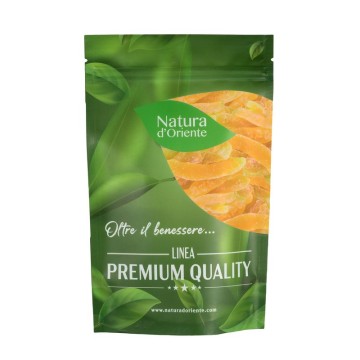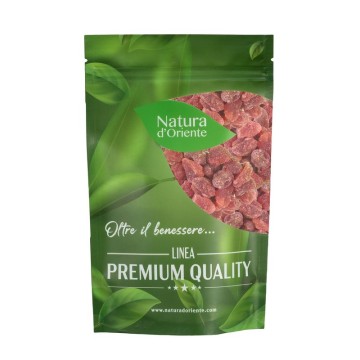Dehydrated coconut cubes
For those looking for a special food among dehydrated fruit, dried coconut is a delicacy that is also good, thanks to its characteristics!
Properties and benefits:
Coconut is a fruit rich in selenium, manganese and copper , and in its version in dried coconut cubes it is an excellent food source, to be included in the diet daily to obtain the supply of mineral salts .
This food has strong antioxidant properties, which protect cells from free radicals in anti-aging key, thanks to the presence of many mineral salts that act synergistically with each other. In fact, other elements contained within it also help the body function correctly: calcium, potassium, phosphorus, iron and zinc.
In particular, thanks to the presence of selenium, coconut (also in the dehydrated version of coconut cubes) becomes a valid ally for our well-being. Selenium is an important mineral for the thyroid, and in synergy with other mineral salts, it is useful for a supporting and restorative action.
Origins and History of cultivation
The coconut plant is also known as the coconut palm, and is one of the ten most important plants for humanity.
In the tropical areas of the world, millions of people harvest the fruits, coconuts, and consume them as their main sources of fats and proteins. The plant is essential in all its forms and parts, and constitutes a life and economic basis for entire populations.
Even today, the origin of the coconut palm is still a mystery, both because the fruits are dispersed by sea currents, and because it is not certain that it was spread by the peoples who colonized the oceanic islands. Over the past two centuries, scholars have proposed different theories: Central America, Polynesia, Malaysia, Fiji Islands. Already in medieval times Marco Polo called it nux indica, a name used in 1280 while he was in Sumatra, translating from the Arabic "Indian walnut".
They were the first European explorers, Spanish or like the Italian Pigafetta, in the sixteenth century to know this plant, exploring the coasts of Central and South America. They named her Coco, which means "monkey face". The name comes from the three notches on the hairy fruit that looks like eyes, and the fact that the fruit itself looks like a monkey's face. Nucifera means that the coconut is a carrier of nuts.
The coconut also has a cultural and religious significance in some societies, for example in India, where it is used in Hindu rituals.
Plant and Fruit
The coconut tree, Cocos nucifera L., is part of the Arecaceae family (order of palms) and is the only species of the genus Cocos. Subdivide tall or dwarf, the large palm grows up to 30m tall, with pinnate leaves 4-6m long; periodically the old leaves come off sharply, leaving the trunk smooth. On fertile soil, a coconut palm can produce up to 75 fruits per year, but it usually produces fewer than 30.
The fruit, botanically, is a drupe, not a walnut, but this is how it is defined in almost all languages. Coconuts are distinguished from other fruits by their endosperm which contains a large amount of water (called "coconut milk") and, when immature, they can be harvested for their drinking coconut water content. When ripe, the nuts can be made into coconut oil, coconut charcoal obtained from the shell, and coconut fiber from the fibrous husk. Once dried, the coconut pulp is called copra. A full-sized coconut weighs approximately 1.5 kg.
The pulp, used for food purposes eaten fresh or dried as in coconut chips, is used to extract coconut oil or for the production of coconut flour. The coconut oil and milk derived from it are commonly used in cooking and for frying, as well as to create soaps and cosmetics. The peels and leaves can be used as a material to make furniture or decorations.
Coconut oil (or margarine), an oil of high economic importance, is obtained from the almond (copra) of the fruit.
Sometimes, coconut oil is also used as animal feed: copra produces by-products known as copra panels, which are useful for these purposes. In addition, coconut butter is also extracted from the nut, which is obtained by cold pressing the pulp.
Nutritional values of Dehydrated Coconut Cubes
For a greedy and nutritious snack, dried coconut flakes are perfect , as they come directly from the coconut, preserving all its nourishing properties.
This version of coconut contains different sugars, as you can compare with the nutritional table, but also a content of fibers, proteins and fats.
The fruit of the coconut, as we have seen, is rich in salts minerals, in particular selenium, manganese and copper, and in its dry coconut version it is an excellent food source, to be included in the daily diet to obtain the contribution of mineral salts.
In the dried coconut fruit we also find B vitamins, in modest quantities. It is a substantial food, with a high nutritional and calorie concentration; generally indicated in low-calorie diets only if it replaces other sources of fat, while dried coconut flakes are excellent for enriching the energy bars of athletes.
Like other dehydrated fruit specialties, dried coconut can be an excellent idea of energy snack, to be included in diets to satiate through small cubes, perhaps in a mix of dried fruit.
How to consume or use dried coconut in the kitchen
The dehydrated coconut cubes can be used for some preparations, although obviously they are one of the wellness snacks to be included in calorie-controlled diets. Coconut flakes as dehydrated fruit can be mixed with fruit or vegetable smoothies or smoothies, yoghurt, fruit salads, vegetable milk drinks, dried fruit cereal mixes, on ice creams in summer. Coconut chips can also be used to create energy or diet bars, always evaluating the calorie intake on high quantities (480 kcal / 100 g).
Dehydrated coconut: side effects and contraindications
There are no particular contraindications to taking dried coconut, in the correct quantities, unless there is an intolerance to the food. For those with certain obesity conditions or problems with blood sugar levels (diabetes), it is advisable to evaluate the consumption for the high presence of sugars in the dried coconut cubes.
![]()
![]()

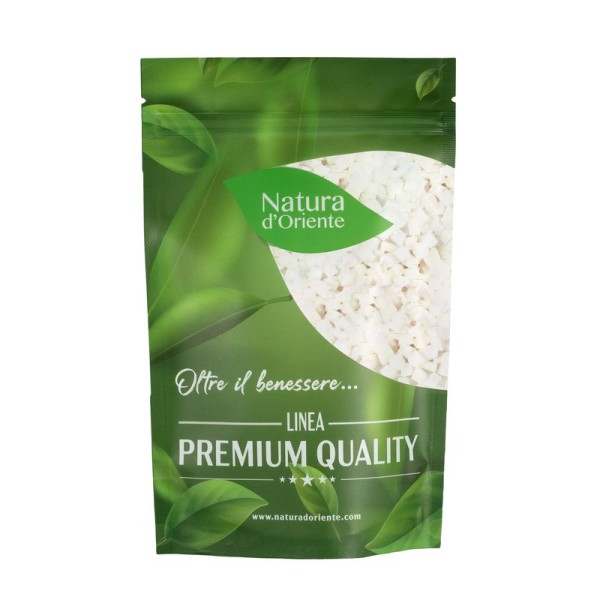











 No reward points for this product.
No reward points for this product.
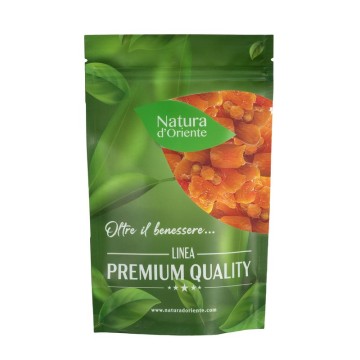
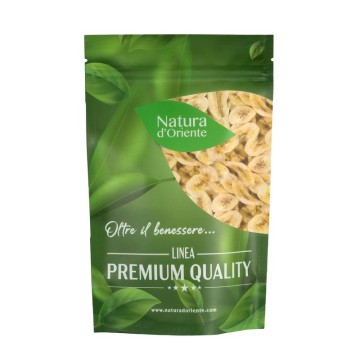

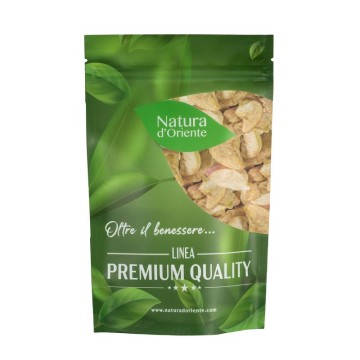
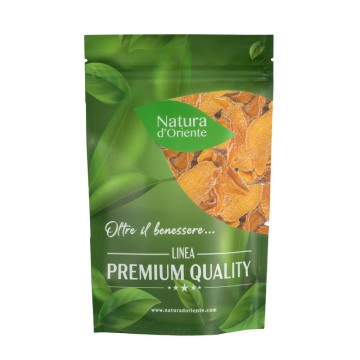
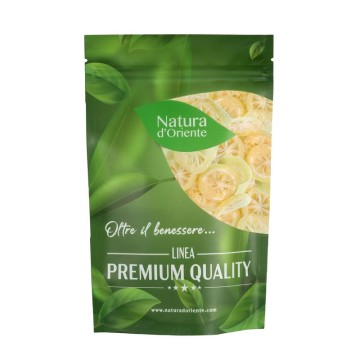
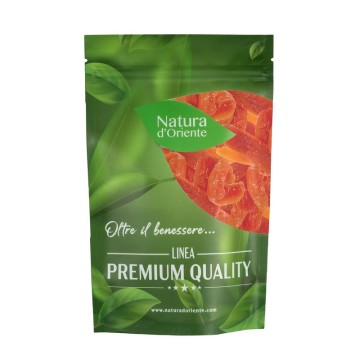
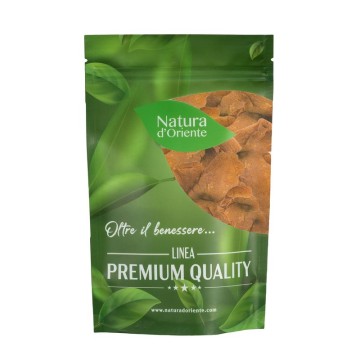
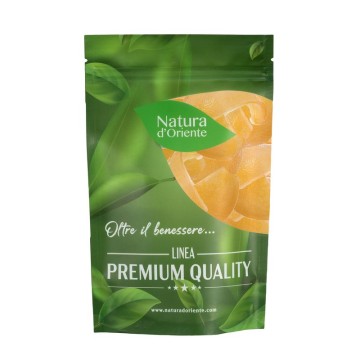
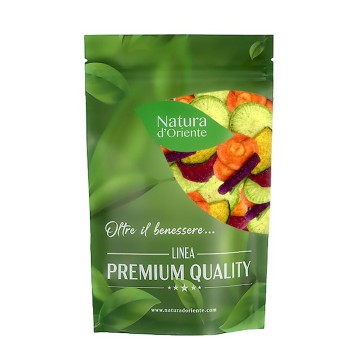
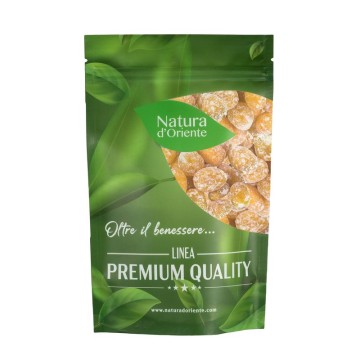
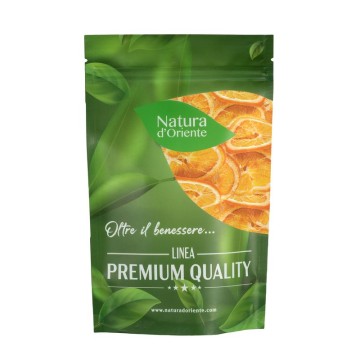
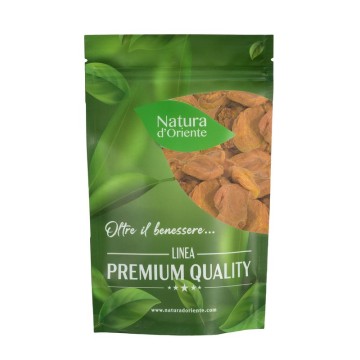
![Natural dehydrated grapefruit without added sugar [NATURADORIENTE]](https://www.naturadoriente.com/10190-home_default/pompelmo-naturale-disidratato-senza-aggiunta-di-zucchero.jpg)
